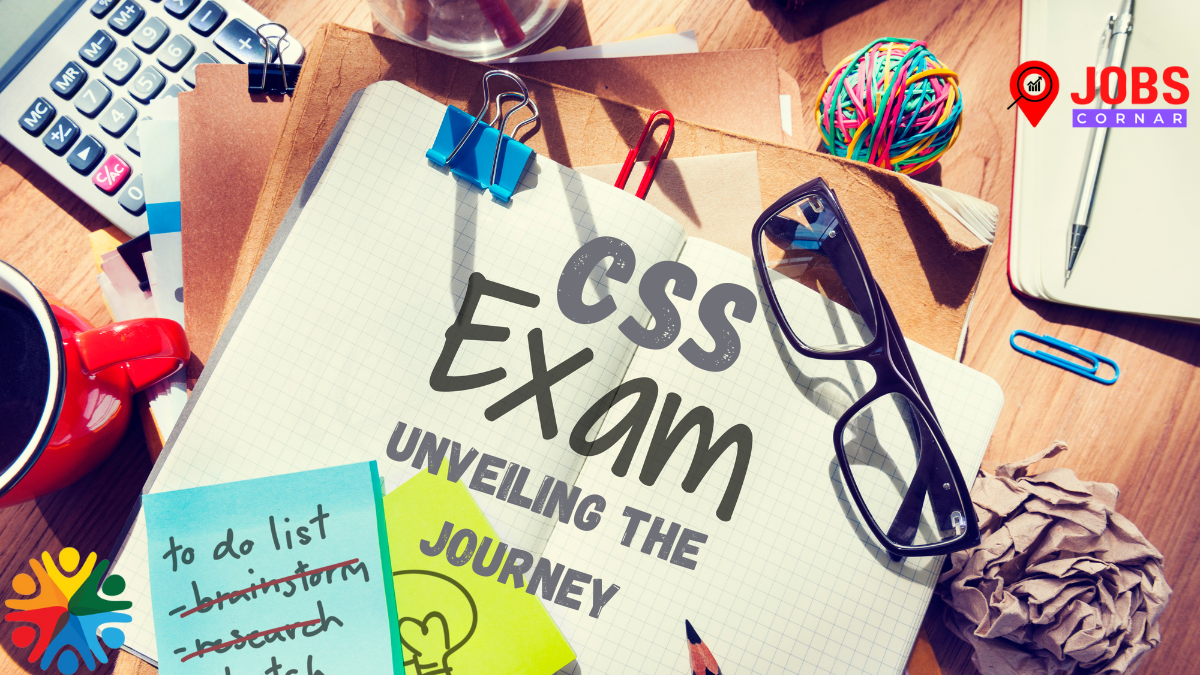The Central Superior Services (CSS) exam in Pakistan is a highly esteemed examination that opens doors to a rewarding career in civil services. This comprehensive guide will walk you through the entire process of the CSS exam in Pakistan, from understanding its significance to preparation strategies and frequently asked questions.
Introduction
The CSS exam in Pakistan stands as a pivotal point for those who aspire to serve their country through various administrative roles. It’s a highly competitive assessment conducted by the Federal Public Service Commission (FPSC) to select candidates for prestigious positions in the government sector. Successfully passing this exam not only reflects one’s commitment but also showcases their expertise in various fields.
Understanding the CSS Exam Structure
The CSS exam in Pakistan is a rigorous assessment that covers a wide array of subjects, testing candidates’ aptitude, knowledge, and critical thinking abilities. This exam is divided into two parts:
Written Examination
The written examination consists of twelve papers, each carrying 100 marks. These papers cover a diverse range of subjects, including:
- Essay Writing
- English Precis & Composition
- Current Affairs
- Pakistan Affairs
- Islamic Studies or Comparative Religion
- General Science & Ability
- Optional Subjects (six papers from a chosen list)
Viva Voce (Interview)
Candidates who successfully pass the written examination are shortlisted for the viva voce, commonly known as the interview. This phase evaluates candidates’ personality traits, communication skills, and overall suitability for administrative roles.
CSS Exam Compulsory Subjects
The CSS exam in Pakistan consists of six compulsory subjects that every candidate must take. These subjects are designed to assess candidates’ general knowledge, analytical abilities, and language proficiency. Here’s an overview of the compulsory subjects:
1. Essay Writing
The essay paper evaluates candidates’ writing skills, critical thinking, and ability to present coherent arguments on various topics.
2. English Precis & Composition
This paper assesses candidates’ comprehension, language usage, and precis writing skills.
3. Current Affairs
Current Affairs covers national and international events, political developments, and issues of significance.
4. Pakistan Affairs
This subject delves into the history, politics, economy, and cultural aspects of Pakistan.
5. Islamic Studies or Comparative Religion
Candidates can choose between Islamic Studies and Comparative Religion, focusing on religious principles and their application in society.
6. General Science & Ability
General Science & Ability assesses candidates’ understanding of scientific concepts and their logical reasoning abilities.
CSS Exam Optional Subjects
In addition to the compulsory subjects, candidates can choose optional subjects that align with their interests and expertise. The optional subjects are divided into two groups, with candidates selecting one subject from each group. Here’s a glimpse of the available optional subjects:
Group I Optional Subjects
- International Relations
- Political Science
- Economics
- Psychology
- Geography
- Anthropology
Group II Optional Subjects
- Physics
- Chemistry
- Biology
- Computer Science
- Pure Mathematics
- Applied Mathematics
Group III Optional Subjects
- History of Pakistan & India
- Islamic History & Culture
- British History
- European History
- History of USA
- Journalism & Mass Communication
Group IV Optional Subjects
- Law
- Constitutional Law
- Mercantile Law
- Muslim Law & Jurisprudence
- International Law
- Criminology
Exploring Popular Optional Subjects
1. History of Pakistan & India
This subject delves into the historical background of the subcontinent. It covers various phases, from ancient civilizations to the partition of India and the creation of Pakistan.
2. International Relations
International Relations focuses on global political dynamics, international organizations, diplomatic principles, and foreign policy analysis.
3. Political Science
Political Science explores the structure and functioning of political systems, governance, ideologies, and the dynamics of power.
4. Sociology
Sociology studies society, its structure, institutions, social change, and the impact of various factors on human behavior.
5. Journalism & Mass Communication
This subject covers the principles of journalism, media ethics, mass communication theories, and the role of media in society.
6. Law
Law as an optional subject introduces candidates to various legal frameworks, statutes, and fundamental principles of the legal system.
Factors to Consider When Choosing Optional Subjects
Selecting optional subjects requires careful consideration. Here are a few factors to always keep in mind:
1. Interest and Strengths
Opt for subjects aligned with your interests and strengths. This will make studying more enjoyable and increase your chances of scoring well.
2. Relevance to Career Goals
Choose subjects that align with your career goals. For example, if you aspire to join the foreign services, subjects like International Relations can be beneficial.
3. Availability of Resources
Ensure that adequate study resources are available for your chosen optional subjects. Availability of books, online materials, and coaching can impact your preparation.
4. Previous Background
Your academic background plays a role. Subjects related to your previous studies can provide a foundation, making it easier to grasp concepts.
5. Scoring Potential
Some optional subjects are considered scoring due to their objective nature. Research the historical performance of subjects to make an informed decision.
Preparing for the CSS Exam
Preparation for the CSS exam demands dedication, discipline, and a well-structured strategy. Here are some steps to guide you through the preparation process:
1. Understanding the Syllabus
Before you dive into preparation, thoroughly understand the syllabus and choose your optional subjects wisely. Your choice should align with your strengths and interests.
2. Time Management
Creating a study schedule is crucial. Allocate sufficient time to each subject, focusing on understanding concepts rather than rote memorization.
3. Extensive Reading
Must stay updated with current affairs by reading reputable newspapers, and magazines and watching videos related to current fairs. Develop a habit of reading diverse literature to enhance your analytical skills.
4. Practice, Practice, Practice
Regularly practice essay and precis writing to improve your writing skills. Solve past papers to acquaint yourself with the exam pattern and time management.
5. Mock Interviews
Enlist the help of mentors or coaching centers to conduct mock interviews. Constructive feedback will help you refine your interview performance.
6. Stay Healthy
Maintain a healthy lifestyle. A balanced diet, regular exercise, and adequate sleep will enhance your cognitive abilities.
FAQs about CSS Exam in Pakistan
Q: What are the eligibility criteria for the CSS exam?
To be eligible for the CSS exam, you must have a bachelor’s degree from a recognized university and be between 21 to 30 years of age.
Q: How many times can I attempt the CSS exam?
Candidates can attempt the CSS exam three times, provided they meet the age criteria.
Q: Can I take the exam in Urdu?
Yes, you can choose to take the exam in either English or Urdu.
Q: Is coaching necessary for preparation?
Coaching can provide structure and guidance, but self-study with dedication can also lead to success.
Q: How can I handle the psychological pressure of the exam?
Practicing meditation, deep breathing, and positive visualization can help manage exam-related stress.
Q: What career options are available after passing the CSS exam?
Successful candidates can join various government services, including the police, administration, foreign services, and more.
Conclusion: Your Journey Begins
Embarking on the journey of the CSS exam in Pakistan requires determination and unwavering commitment. This examination not only tests your knowledge but also your resilience and ability to handle challenging situations. By following a well-structured preparation plan and staying true to your aspirations, you can pave the way for a rewarding career in civil services.




